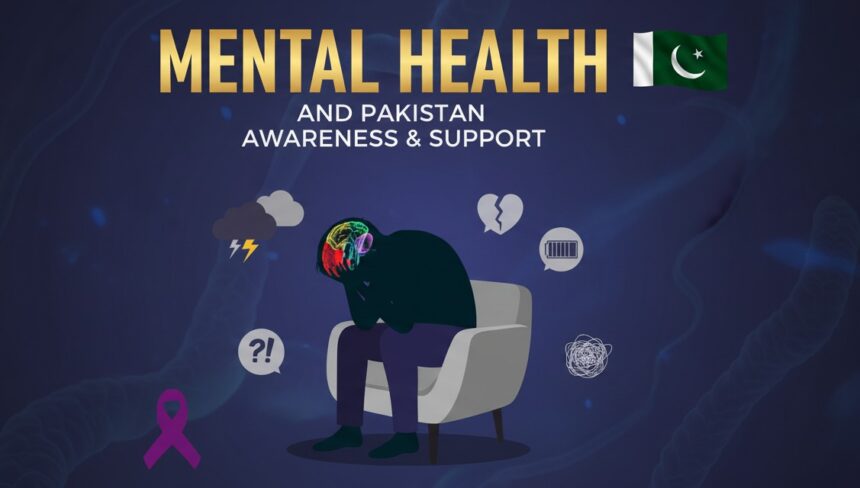Mental Health in Pakistan: The Hidden Double Burden
By Dr. Asma Fatima Makhdoom
“Health is an ideal physical, mental, social state of things; it is not just the absence or low rate of disease.” — WHO
On the health issue, most discussions in Pakistan, though, always include polio, dengue, and malnutrition. But we are still overlooking the silent emergency called mental health. What is less known is that people living with a mental illness do not really just suffer an emotional burden; they carry what is wholly a physical burden called the double burden of disease.
Studies all over the globe have shown that people with severe mental illnesses live shorter by 20 to 25 years than the general population. This is not necessarily because of suicide or self-harm, but from an increased incidence of various physical illnesses: diabetes, hypertension, stroke, heart disease, etc. In Pakistan, mentally ill patients are mostly unable to seek timely care, which increases morbidity and mortality rates in serene silence.
Why the Double Burden?
There are many reasons. Depressed patients or patients with schizophrenia usually have very poor lifestyle habits, such as smoking, a bad diet, or a lack of exercise. Medicines related to psychiatric conditions are known to have side effects like gaining weight, having tremors, or even suffering from sexual dysfunction, and thus create even more barriers to care. This is where families would hide or hide such problems due to stigma, making it all the more difficult to express physical symptoms at their appearance.
Instead, the healthcare system will favor the mental symptoms and ignore the physical ones. Of course, this situation is aggravated in already overburdened hospitals in Pakistan.
A Way Forward
The good news is that it is bringing mental health into Pakistan’s Essential Health Services Package at the primary care level. This will mean training appropriate health workers to recognize early signs of mental illnesses in patients, counsel families, and keep an eye on other physical health risks like diabetes or hypertension. Telemedicine platforms are reaching more remote and underserved areas for counseling services.
Conclusion
Let mental health also come out of the corridors of darkness. Let mind and body both be addressed, or else millions of Pakistanis will continue to live shorter lives with poorer quality. Breaking stigma, training health workers, and integrating mental and physical care is the only way forward.











